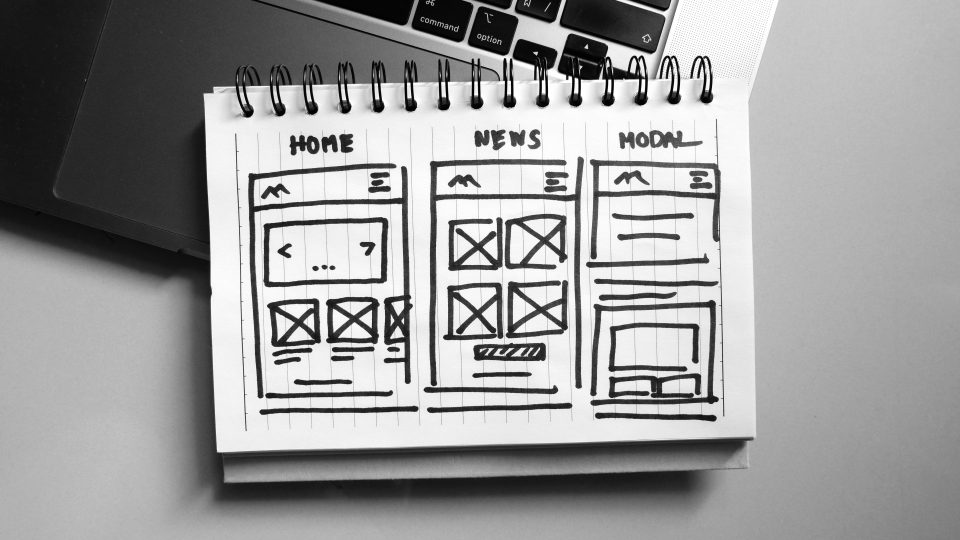Your website is often the first impression you make on potential customers. It’s your digital storefront, your brand ambassador, and a powerful marketing tool. To ensure that your website fulfills its potential, it’s crucial to pick the best professional service provider for your business. But with so many options available, how do you choose the right one? In this comprehensive guide, we’ll walk you through the key factors to consider when selecting a web design company.
What is a Web Design Agency?
A web design agency is a company or organization that specializes in designing and developing websites for businesses, individuals, or other entities. These agencies have a team of professionals with expertise in various aspects of design and development, including graphic design, user experience and user interface design, coding, and programming. The primary goal of the agency is to create visually appealing, functional, and user-friendly websites that cater to the specific needs and objectives of their clients.
Here are the key components that define a web design agency:
- Design Expertise: They have skilled graphic designers who focus on creating the visual elements of a website, including layout, color schemes, typography, and imagery. They ensure that the website’s design aligns with the client’s brand identity and resonates with the target audience.
- Development Capabilities: They have web developers who are responsible for the technical aspects of building the website. They use various programming languages and technologies to bring the design to life and make it functional. This includes coding, database management, and integrating interactive features.
- User Experience and User Interface Design: These agencies emphasize creating websites with exceptional UX and UI. UX design ensures that the website is easy to navigate, user-friendly, and provides a positive experience for visitors. UI design focuses on the layout and visual elements to make the site aesthetically pleasing and functional.
- Content Management System (CMS) Integration: They often work with content management systems like WordPress, Drupal, Shopify, Webflow, Squarespace, Wix, and others. They integrate and customize these systems to make it easier for clients to manage and update website content.
- Mobile Responsiveness: With the increasing use of mobile devices, these agencies ensure that the websites they create are responsive, meaning they adapt and function well on various screen sizes and devices, including smartphones and tablets.
- Search Engine Optimization (SEO): Many of them offer SEO services to ensure that the websites they build are optimized for search engines. This involves implementing SEO best practices, optimizing content, and improving the site’s chances of ranking well in search engine results.
- E-commerce Development: Some of these agencies specialize in e-commerce and create online stores, complete with features such as product listings, shopping carts, secure payment gateways, and inventory management.
- Ongoing Maintenance and Support: After the website is launched, these agencies often provide ongoing maintenance and support services. This includes updates, security, and troubleshooting to keep the website running smoothly.
- Content Creation and Management: Some agencies offer content creation services, including copywriting and graphic design, to help clients populate their websites with compelling and engaging content.
Web design agencies cater to a wide range of clients, from small businesses and startups to large corporations and nonprofit organizations. They work closely with clients to understand their objectives, target audience, and branding, and then design and develop websites that meet these needs. These agencies play a vital role in helping businesses establish a strong online presence and effectively communicate their message to the digital world.
Unleash your website’s potential by partnering up with one of the top web design agencies!
Contact Growth Hackers
What Are the Roles and Responsibilities of a Web Design Agency?
A web design company plays a crucial role in creating and maintaining effective websites for businesses and organizations. Their roles and responsibilities encompass a wide range of tasks, from the initial planning and design phase to ongoing website maintenance. Here’s a list of their other key roles and responsibilities:
- Web Speed Optimization:
- Optimize website performance to reduce page load times, improving user experience and search engine rankings. A fast-loading site is essential for retaining visitors and ranking well in search results.
- Compress images and optimize code to increase site speed, ensuring that web pages load quickly and efficiently.
- Security:
- Implement security measures to protect the website from hacking, malware, and other threats. Security is paramount to safeguard sensitive data and maintain website integrity.
- Keep software, plugins, and themes up to date to maintain security and protect against vulnerabilities.
- Landing Pages and Conversion Optimization:
- Design and optimize landing pages to encourage specific actions, such as signing up for newsletters or making purchases. Well-designed landing pages play a crucial role in converting visitors into customers or leads.
- Implement conversion rate optimization (CRO) strategies to maximize conversion rates by refining elements like forms, CTAs, and content placement.
- Analytics and Tracking:
- Set up analytics tools like Google Analytics to monitor website traffic, user behavior, and key performance indicators. Data analysis provides insights into website performance.
- Use data insights to make informed decisions for website improvements, such as refining content, user pathways, or marketing strategies.
- A/B Testing:
- Conduct A/B tests to compare different website elements (e.g., CTAs, headlines) to determine which performs better. A/B testing helps identify the most effective design and content choices.
- Internal Linking:
- Implement internal linking strategies to improve website structure and enhance user experience. Proper internal linking can guide users to relevant content and improve site navigation.
- Ensure proper link anchor text and relevancy, helping search engines understand the context and relationships between pages.
- Cross-Browser Compatibility:
- Test and optimize the website to ensure it works consistently across various web browsers. Cross-browser compatibility ensures a seamless experience for all users, regardless of their browser choice.
- Training and Documentation:
- Offer training and documentation to clients for managing and updating their websites if they wish to do so independently. Providing clients with the knowledge and resources to manage their sites is empowering and fosters self-sufficiency.
- Quality Assurance and Testing:
- Conduct extensive testing to identify and resolve any bugs, broken links, or issues before launching the website. Rigorous testing is essential to ensure a smooth and error-free user experience.
- Compliance and Accessibility:
- Ensure that the website complies with industry standards and guidelines, including accessibility standards (e.g., WCAG) for all users, including those with disabilities. Compliance and accessibility are ethical and legal imperatives.
- Monitoring and Performance Improvement:
- Continuously monitor website performance, identify areas for improvement, and implement enhancements to meet evolving user expectations and technology trends. Websites are not static; ongoing optimization is key to staying competitive and meeting user demands.
Their roles and responsibilities are multifaceted, covering every aspect of website creation, optimization, and maintenance. The success of a project depends on the agency’s ability to balance design aesthetics, functionality, user experience, and technical proficiency to meet the client’s objectives.
What to Look for in a Web Design Agency?
Selecting the right professional is a critical decision for the success of your online presence. To ensure you make the best choice, consider the following factors when looking for a web design agency:
- Portfolio and Past Work: Review the agency’s portfolio to evaluate the quality and diversity of their previous projects. A well-rounded web design case study or portfolio demonstrates the agency’s versatility and ability to tailor designs to various industries. Additionally, check if they have experience in your industry or have worked on projects similar to what you have in mind. Industry-specific experience can be valuable in understanding your unique needs and challenges.
- Reputation and Reviews: Look for online reviews and testimonials from past clients. These reviews can offer insights into the agency’s professionalism, communication, and project management. Ask for references and contact previous clients to gather insights into their experiences. Talking directly to past customers can provide a more comprehensive understanding of what it’s like to work with the agency.
- Expertise and Services: Ensure the agency offers a wide range of services, including design and development, CMS integration, SEO, and other digital marketing services. A full-service agency can streamline your project by providing all the necessary services under one roof. Confirm that they have expertise in the specific areas you need, such as e-commerce, mobile design, or custom web applications. Their expertise should align with your project requirements.
- CMS Proficiency: If you have a preferred content management system, make sure the agency is proficient in working with it. Ask about their experience with various platforms and their customization capabilities. Proficiency with your preferred CMS ensures a smoother development process and easier content management.
- Design Style and Compatibility: Assess their design style to ensure it aligns with your brand and aesthetic preferences. The agency’s design approach should be in harmony with your vision and brand identity. Check that their designs are responsive and compatible with various devices and browsers. Cross-device and cross-browser compatibility is vital for a seamless user experience.
- Search Engine Optimization: Inquire about their SEO practices and strategies for on-page optimization. Effective on-page SEO is essential for improving your website’s visibility in search engines. Discuss how they plan to make your website search engine-friendly, including keyword optimization and meta tag implementation.
- Mobile Optimization: Confirm that the agency prioritizes mobile responsiveness and can create websites that provide an excellent user experience on mobile devices. Mobile optimization is crucial in today’s mobile-driven landscape, as a significant portion of web traffic comes from mobile users.
- Content Creation and Management: Discuss their content creation and management capabilities. Determine if they can assist with creating and updating content. Effective content management is essential for keeping your website fresh and engaging. Understand how they handle content strategy, content creation, and ongoing content updates to keep your site up to date.
- E-commerce Expertise: If you have an e-commerce website, ensure the agency has experience in creating online stores, handling payment gateways, and optimizing the shopping experience. E-commerce expertise is crucial for ensuring a secure and user-friendly online shopping environment.
- Security Measures: Ask about their security practices and how they protect websites from hacking, malware, and other threats. Security should be a top priority to safeguard your website and user data. Discuss their procedures for regular software and plugin updates to maintain a secure environment.
- Client Collaboration: Evaluate the agency’s approach to collaboration and communication. Effective communication is key to a successful project. They should be open to your input and feedback throughout the project, fostering a collaborative and transparent working relationship.
- Budget and Pricing: Discuss your budget and get a clear understanding of the agency’s pricing structure. Transparency in pricing ensures there are no unexpected costs down the road. Be clear about what is included in their services and inquire about any ongoing maintenance or SEO costs to align your budget with their offerings.
- Support and Maintenance: Inquire about post-launch support and maintenance services. A good agency should offer ongoing support to keep your website up-to-date and secure. Understanding their post-launch support offerings is crucial for the long-term health of your website.
- Timelines and Deadlines: Understand the agency’s project timelines and deadlines. Ensure they can meet your time constraints and launch goals. Timely project delivery is essential for meeting your business objectives and market expectations.
- Legal and Contractual Details: Review the agency’s contract, including terms, deliverables, and payment schedules. Ensure that all legal and contractual details are clear and mutually agreed upon to avoid any potential disputes.
- Innovation and Trends: Ask about their awareness of current web design trends and their willingness to implement innovative and cutting-edge solutions. Staying current with industry trends is vital for creating a modern and competitive website.
- Location and Communication: Consider whether the agency’s location is conducive to effective communication and collaboration. The physical proximity or remote work arrangements should align with your communication preferences. Determine how they handle remote or virtual project management if necessary.
- Scalability and Future Growth: Discuss how the agency plans for scalability and future growth. Your website should be designed to accommodate future changes and expansion. Consider their strategies for ensuring your website remains relevant and functional as your business evolves.
By carefully considering these factors and asking the right questions, you can make an informed decision agency that aligns with your project’s goals, budget, and long-term vision. Conducting interviews and in-depth discussions with potential agencies will help you gain a better understanding of their capabilities and methods.
Elevate your online presence – hire one of the best website design agencies today!
Contact Growth Hackers
When to Consider Hiring a Web Design Agency
- Complex Projects: If your website project is complex, involves advanced functionality (e.g., e-commerce, custom databases, web applications), or requires integration with other systems, a web design agency’s expertise is invaluable.
- Professional Design: If you want a high-quality, professional design that aligns with your brand and stands out from the competition, web design agencies have the experience and resources to create visually appealing, user-friendly sites.
- Time Constraints: If you have a strict timeline for your project, agencies can often complete it more efficiently than DIY efforts, saving you time and allowing you to launch your website sooner.
- Customization and Uniqueness: If you need a highly customized and unique website tailored to your specific requirements, agencies have the skills to deliver a fully customized solution that suits your business needs.
- Scale and Growth: If your business is rapidly growing or planning for expansion, agencies can create scalable websites that can accommodate growth without a complete redesign.
- Full-Service Needs: If you want a one-stop solution for your website, including design, development, SEO, and ongoing support, agencies often offer a comprehensive range of services.
Final Thoughts on How to Choose the Best Web Design Agency
Working with web design professionals help create a high-quality, professional website that aligns with your brand and meets their requirements. When picking one, consider their portfolio and past work, reviews and reputation, expertise, and services offered, design style compatibility, and scalability plans for future growth. An effective web design company should have expertise in various aspects of web development, from graphic design to CMS integration and SEO.
If you’re looking for a web design agency, then consider Growth Hackers.
Growth Hackers is one of the top website design and development companies and our dedication to excellence and a track record of delivering unparalleled results set us apart as the best web design agency for your needs. We take web design to the next level by leveraging our internally developed, cutting-edge growth strategies that go beyond conventional methods.
Why should you choose Growth Hackers for your website needs?
- Results-Driven Approach: We never compromise on results. Our commitment is to ensure that your website not only looks great but also achieves your business goals, whether it’s lead generation, sales growth, brand enhancement, or user acquisition.
- Cutting-Edge Growth Strategies: What distinguishes us is our unique, in-house growth strategies. We don’t settle for the ordinary; we bring innovative and effective solutions to the table that lead to business expansion.
- Tailored Solutions: We work closely with you to understand your specific objectives. Whether you’re looking to generate leads, drive targeted traffic, boost sales, optimize conversions, or achieve any other web-related goal, our services are precisely tailored to your needs.
- Scalable Success: The result of our collaboration is a scalable solution that not only meets your immediate requirements but also positions your web presence for future growth.
There is no fluff with Growth Hackers. We help entrepreneurs and business owners elevate their online presence with the best web design agency, increase their productivity, generate qualified leads, optimize their conversion rate, gather and analyze data analytics, acquire and retain users and increase sales. We go further than brand awareness and exposure. We make sure that the strategies we implement move the needle so your business grow, strive and succeed. If you too want your business to reach new heights, contact Growth Hackers today so we can discuss about your brand and create a custom growth plan for you. You’re just one click away to skyrocket your business.







